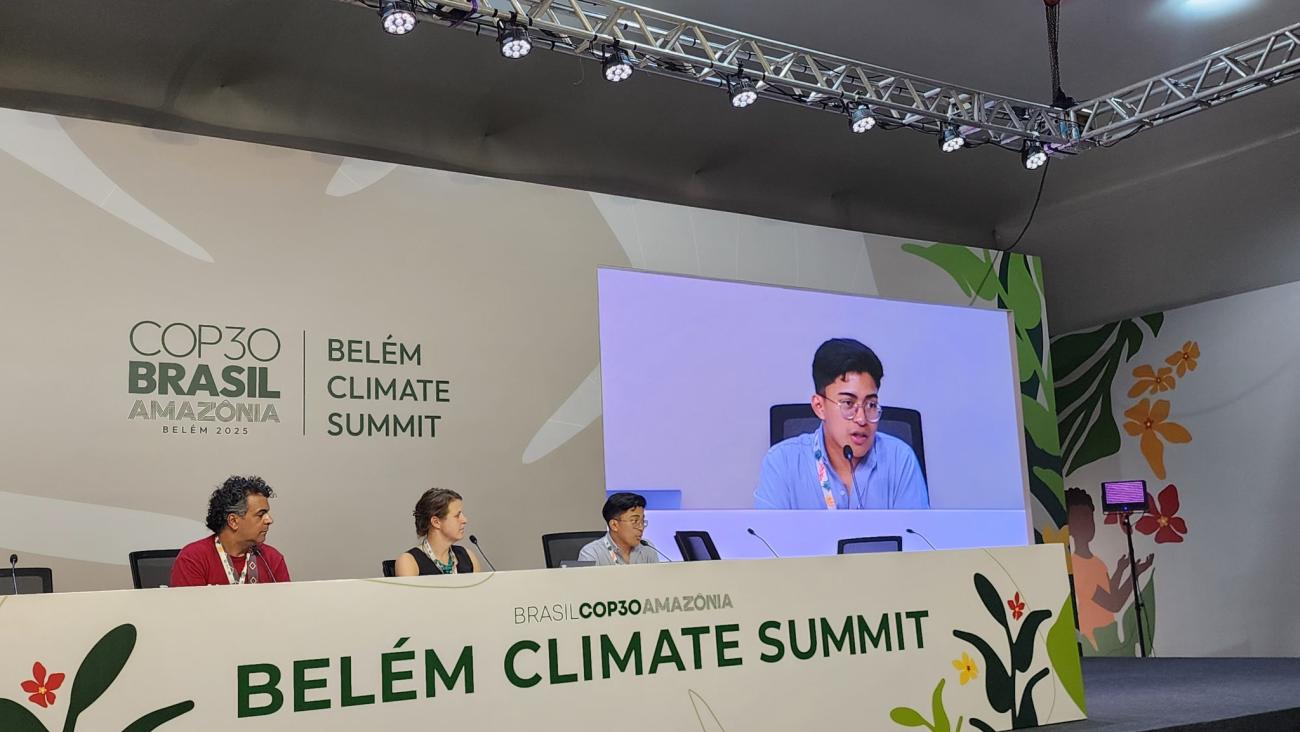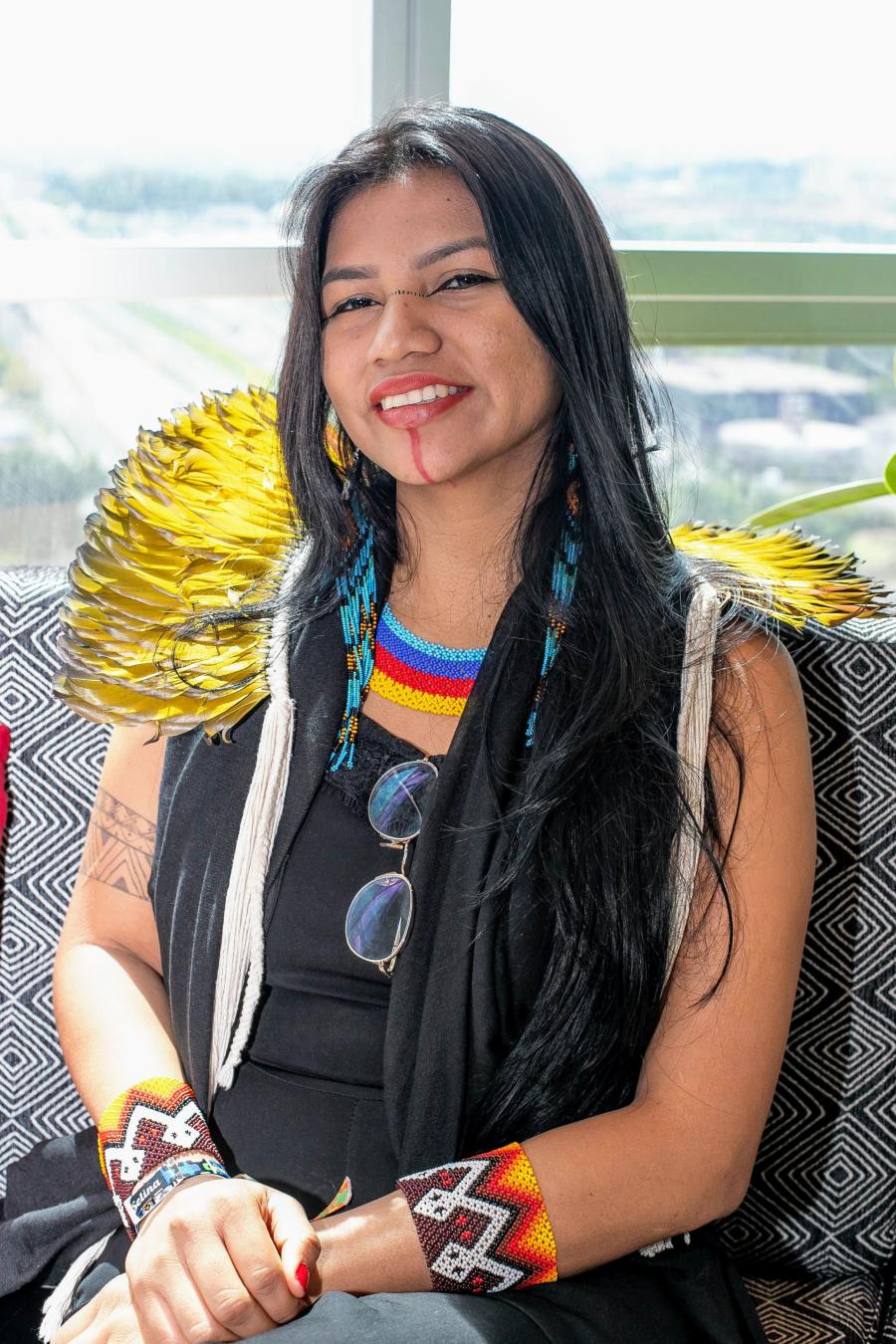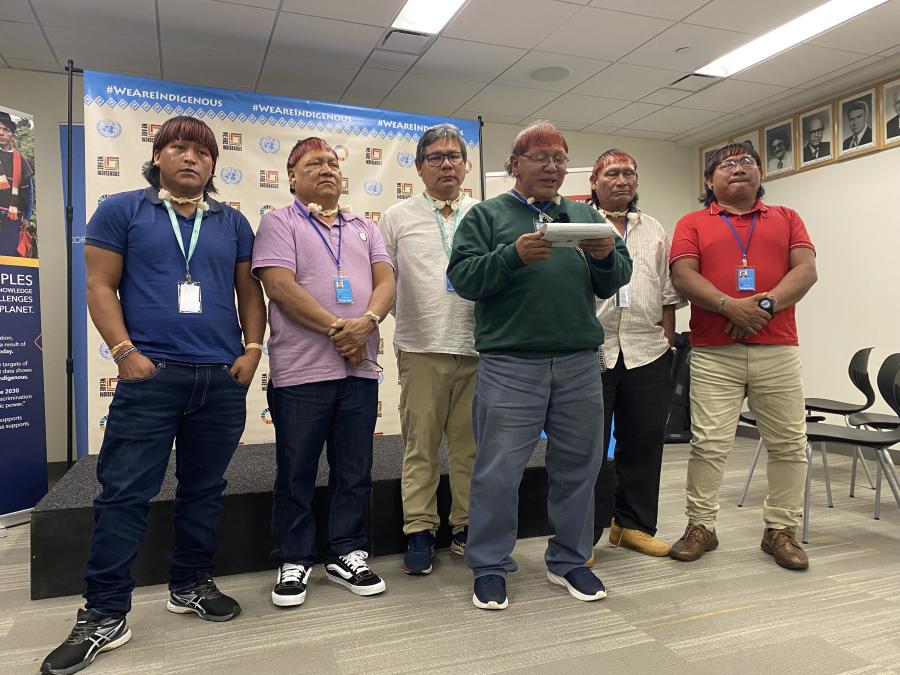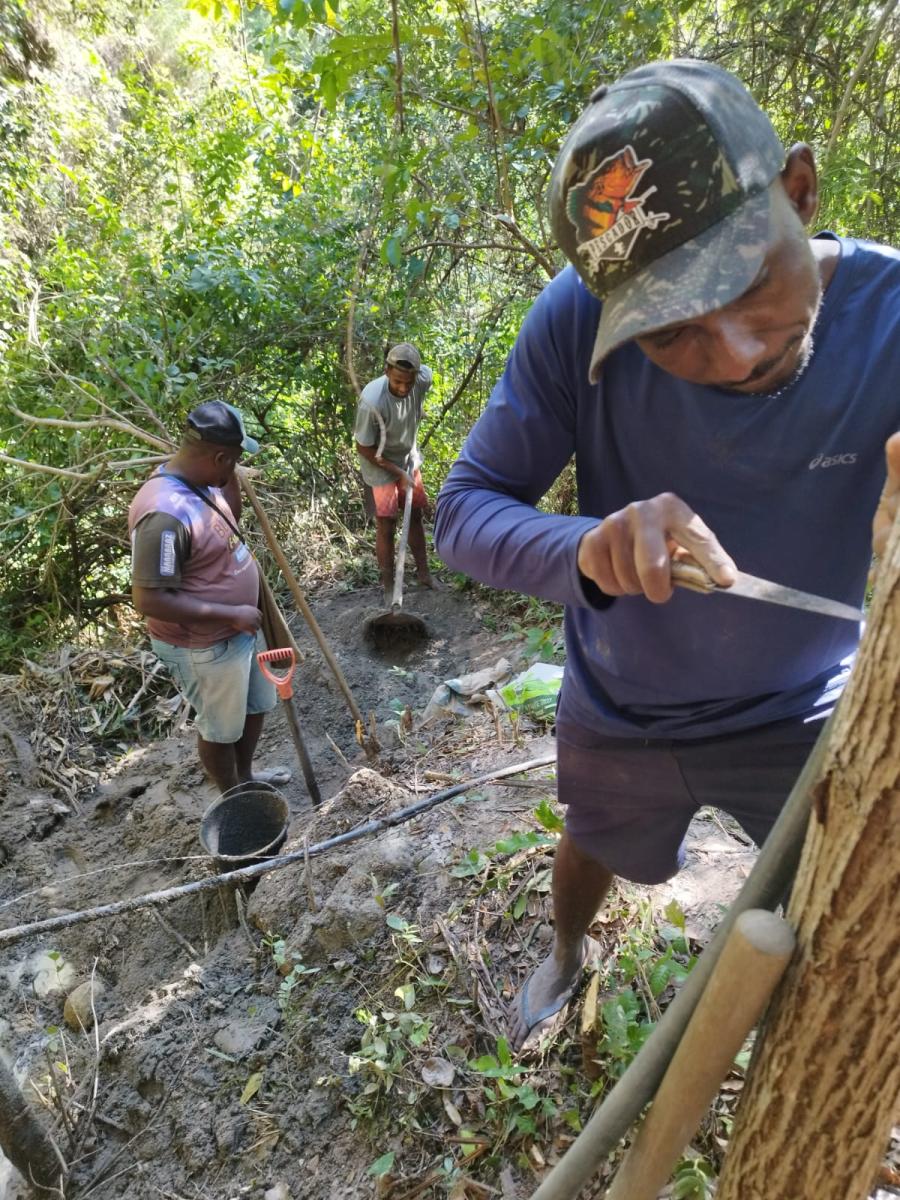
Equipo de CS
Del 10 al 21 de noviembre de 2025, la Conferencia de las Naciones Unidas sobre el Cambio Climático de 2025, también conocida como la Conferencia de las Partes de la Convención Marco de las Naciones Unidas sobre el Cambio Climático (CMNUCC COP30), tiene lugar en Belém, en la región baja del Amazonas en Brasil. Además de la pesada burocracia que ha ralentizado todo el proceso y retrasado la adopción de medidas necesarias, la propia COP30 ha provocado una amplia indignación entre los guardianes de estas tierras —los Pueblos Indígenas de la Amazonía—, que no ven resultados a pesar del elevado número de participantes. Como en años anteriores, las negociaciones están dominadas por grandes delegaciones, integradas no solo por ministros, sus asistentes y negociadores, sino también por representantes de empresas y compañías de carbono con intereses directos en determinados resultados de las negociaciones. Un hecho contundente es que 1 de cada 25 participantes en la COP30 está asociado a los sectores del petróleo y el gas, y estos cabilderos superan en número a todas las delegaciones excepto la de Brasil.
Según lo prometido por el gobierno brasileño, esta COP sobre clima debía ser la “COP de la verdad”, con amplia y diversa participación de los Pueblos Indígenas. Lamentablemente, esto aún no ha ocurrido. Según Earth.org, se esperaba que aproximadamente 2,500 representantes de Pueblos Indígenas de Brasil participaran este año—una cifra récord en la historia del proceso climático de la ONU. Sin embargo, pese a todas las garantías del gobierno, solo el 14% (360 Indígenas brasileños) recibió acreditación para acceder a la “Zona Azul”, un espacio destinado a negociaciones oficiales y al trabajo sobre documentos—el único lugar donde los Pueblos Indígenas pueden promover efectivamente sus derechos e intereses en las futuras recomendaciones adoptadas por las Partes.
Es innecesario decir que muchos representantes Indígenas están enojados, frustrados y profundamente decepcionados. Llegaron a Belém para defender sus derechos e intereses, pero fueron excluidos del proceso de negociación. Para algunas comunidades Indígenas de la Amazonía, estas negociaciones son la última esperanza para poner fin a la minería y la tala en sus territorios.
Esto derivó en un intento desesperado por parte de indígenas de la región de ingresar a la zona de negociaciones para que sus voces y esperanzas finalmente fueran escuchadas. Fueron detenidos no solo por fuerzas de seguridad de la ONU, sino también por fuerzas militares que habían llegado al lugar. En consecuencia, toda la Zona Azul—la zona de negociación—está ahora fuertemente custodiada por seguridad militar. Fuerzas armadas con escudos, cercas metálicas y controles reforzados acentúan aún más la división entre quienes dependen realmente de la salud del medio ambiente para sus vidas y futuro, y quienes priorizan el papeleo y los procedimientos por encima de obtener resultados reales para frenar el cambio climático lo más rápido posible.
Una segunda manifestación tuvo lugar el viernes 14 de noviembre, cuando miembros del Pueblo Munduruku iniciaron una protesta pacífica, bloqueando la entrada principal de la Zona Azul durante aproximadamente cinco horas. Exigieron un diálogo con el presidente Lula da Silva para denunciar el desarrollo de proyectos extractivistas en sus territorios sin su Consentimiento Libre, Previo e Informado, y para exigir la revocación de una orden que pretende privatizar el río Tapajós. El presidente de la COP30, André Corrêa do Lago, dialogó con los manifestantes y afirmó que la manifestación era “legítima y parte de la democracia brasileña”. Queda por verse si el diálogo conducirá a acciones o si quedará en meras palabras.
Al final de la primera semana, quedó claro que los problemas de financiamiento y las falsas soluciones pesan más que los derechos humanos y los derechos de los Pueblos Indígenas a sus tierras, territorios y recursos, incluidos los minerales. Sin embargo, este tema es fundamental para la supervivencia de los Pueblos Indígenas en todo el mundo.
La demanda de los Pueblos Indígenas por acceso directo a financiamiento sigue siendo ignorada, a pesar del reconocimiento oficial de que desempeñan un papel vital en la gestión, conservación y uso sostenible de las tierras y la biodiversidad del mundo. Se estima que los territorios y áreas conservados por Pueblos Indígenas y comunidades locales (ICCAs) cubren más de una quinta parte (21%) de la superficie terrestre mundial (aproximadamente el tamaño de África) y más de una quinta parte (22%) de los puntos críticos de biodiversidad terrestre del mundo.
La sexta edición del Estado de los Pueblos Indígenas del Mundo se centró en la crisis climática. Según este informe de la ONU de abril de 2025, los Pueblos Indígenas protegen el 80% de la biodiversidad restante del planeta y alrededor del 40% de las áreas protegidas y paisajes ecológicamente intactos, pero reciben menos del 1% del financiamiento internacional para medidas contra el cambio climático.
La cantidad que reciben es incluso menor porque el financiamiento se prioriza no para quienes realmente protegen la naturaleza y combaten el cambio climático, sino para instituciones multilaterales, agencias y consultores. Así, se destina una cantidad sustancial de dinero a mantener burocracias, salarios y gastos relacionados. Mientras tanto, los Pueblos Indígenas, quienes realmente preservan la naturaleza y combaten el cambio climático—cuyos conocimientos y prácticas tradicionales han demostrado ser efectivos—reciben menos del 1%. Además, muchos de estos Pueblos no son reconocidos oficialmente y son objeto de criminalización, violencia y asesinatos por sus actividades en defensa y preservación de sus tierras, territorios y recursos naturales. Es injusto, pero es un hecho.
Desafortunadamente, la COP30 aún no ha producido los mejores resultados, pero la solidaridad general de las organizaciones de la sociedad civil, Pueblos Indígenas, ambientalistas, participantes de la COP30 y residentes preocupados de Belém resulta alentadora.
El 15 de noviembre, las calles de Belém se convirtieron en un campo de resistencia, lleno de música, colores, banderas, carteles, cantos y unión entre personas de todas partes. Se llevó a cabo la “Marcha Global por el Clima”, que reunió a alrededor de 70,000 personas bajo un mismo lema: “tomar medidas concretas para combatir el cambio climático y adoptar medidas específicas para proteger los territorios, tierras y aguas de los Pueblos Indígenas”. Los participantes marcharon más de cuatro kilómetros para llamar la atención de los líderes mundiales sobre los problemas del cambio climático, los impactos de la extracción de combustibles fósiles, la violación de los derechos de los Pueblos Indígenas y los derechos humanos, la destrucción de la naturaleza, los asesinatos de defensores de derechos humanos, la demanda de demarcación de tierras y otros asuntos relacionados, pero, sobre todo, para exigir medidas urgentes y acciones reales que combatan el cambio climático y establezcan verdaderas medidas de mitigación.
La delegación de Cultural Survival y sus socios están participando activamente en labores de incidencia en todos los espacios de la COP30: desde el área oficial de negociaciones en la Zona Azul, hasta reuniones con manifestantes y participación en marchas de solidaridad. Apoyamos el trabajo del Foro Internacional de los Pueblos Indígenas sobre el Cambio Climático; nos reunimos con ministros, funcionarios de la ONU, negociadores, activistas y defensores Indígenas, y con las Partes de la CMNUCC; realizamos entrevistas con delegados para visibilizar sus luchas; y organizamos y participamos en eventos paralelos para promover los derechos e intereses de los Pueblos Indígenas en las negociaciones en curso y amplificar sus voces y demandas.



